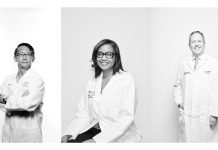Two boys pedaled through a lazy pre-teen afternoon, their voices trailing in their wake with the question from one to the other: тWho would you rather be, Lance Armstrong or Neil Armstrong?т
тNeil Armstrong,т came the buddyтs reply without hesitation, as they sped into their wide-open future.
Their boyhood conversation recalls this exchange in the rite-of-passage movie Stand by Me:
тMickeyтs a mouse, Donaldтs a duck, Plutoтs a dog. Whatтs Goofy?
Goofyтs a dog. Heтs definitely a dog.
He canтt be a dog. He drives a car and wears a hat.
Thatтs weird. What the hell is Goofy?т
Free-form, meandering conversation and thought are pleasures that take a beating in the transition from youthful camaraderie to jobs, paychecks, and cubicle life. Even when weтre having fun, spontaneity is battered at all turns. тMake noise,т the electronic signs urge spectators at Comerica Park, as if we donтt know when to stand, cheer, and clap like the sports-savvy fans who allegedly populate whatтs purported to be the best sports city in the country.
In the political arena, warring factions exhort us to choose one side and revile the other, which is addicting. тThereтs an incredible adrenaline rush from group-versus-group conflict,т says social psychologist Jonathan Haidt, author of Righteous Mind: Why Good People Are Divided by Politics and Religion. Group competition releases dopamine to reward the brain, he explained in a recent interview.
With the season of presidential politics approaching a fevered partisan pitch, culture and the arts offer a refuge. (Make no mistake, the art world is rife with its own rivalry.) But a trip to the Detroit Institute of Arts, an evening at the symphony, or a stop at an art opening can make you almost feel physical relief as your brain experiences the wonders weтre capable of producing.
Scientific studies have shown that returning to a younger version of yourself can, indeed, make you younger and healthier. One researcher called it тde-hypnotizingт ourselves. When Harvard psychologist Dr. Ellen Langer immersed a group of elderly men in a setting that mimicked their lives 20 years earlier, after a week, they looked younger, felt better, and showed better brain function.
With that in mind, these days between the full blue moon (Aug. 31) and the full harvest moon (Sept. 29) might be well spent savoring the lingering warmth of the season with childlike pleasure. Itтs time, too, to indulge in the wide-open thinking of the arts, illuminating our thoughts for less sunny days on the near horizon.
Like the young boy on the bike, NASA or not, we can still reach for the moon.
|
| Ь§ |
|








